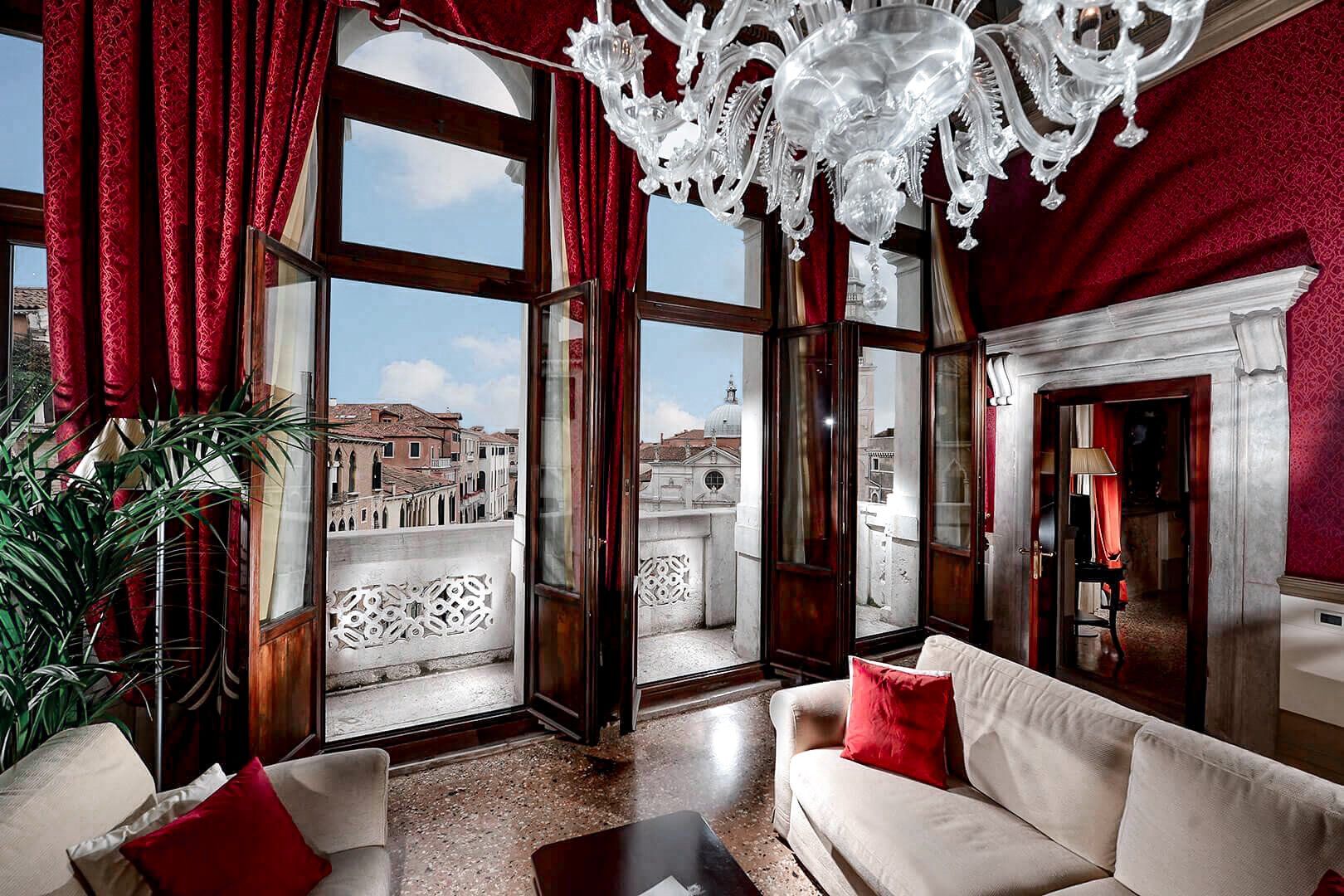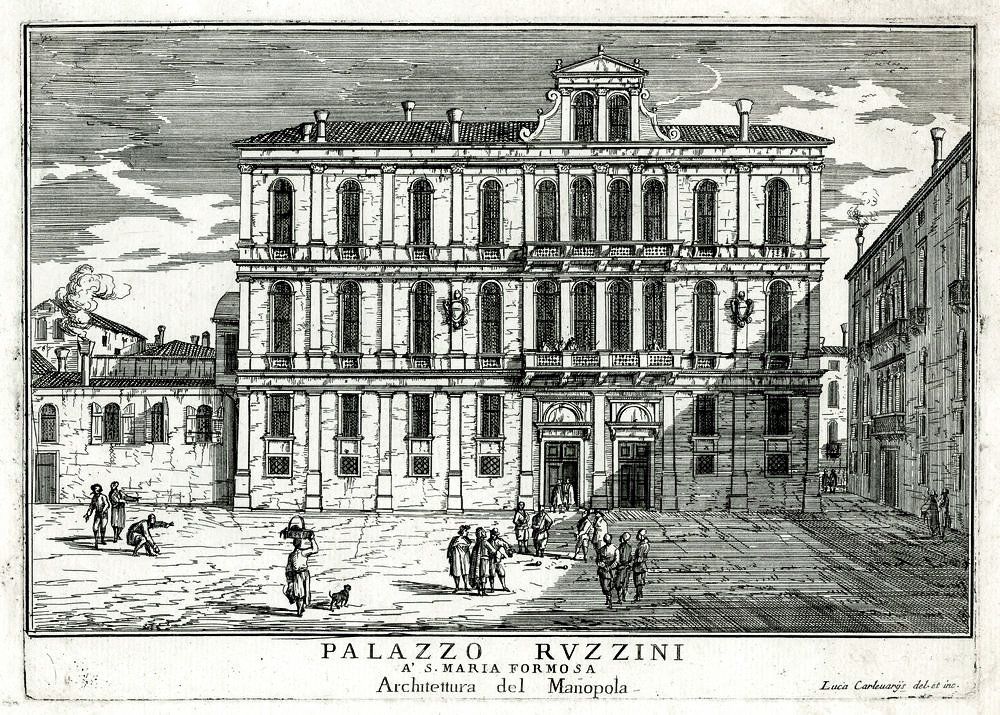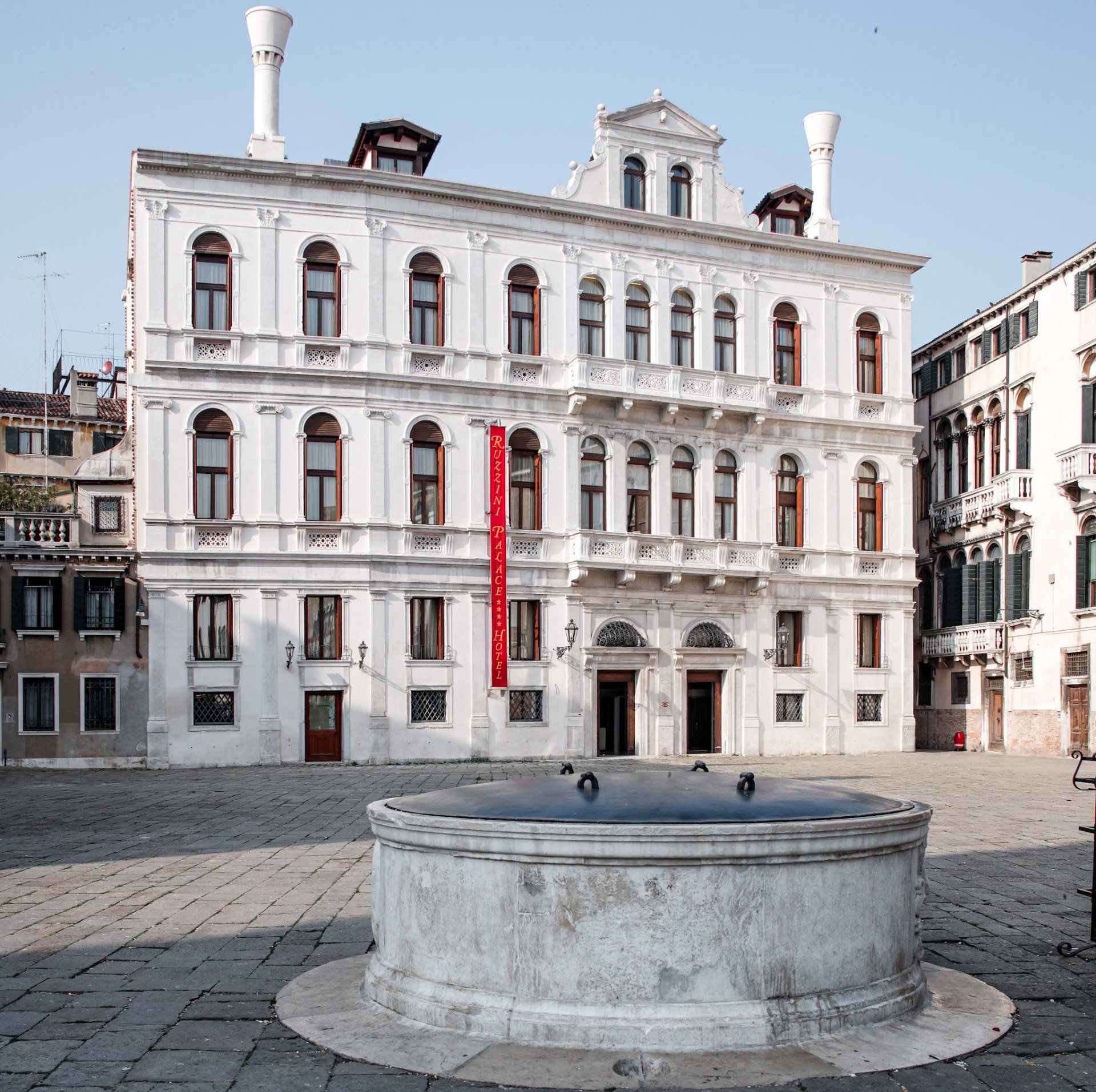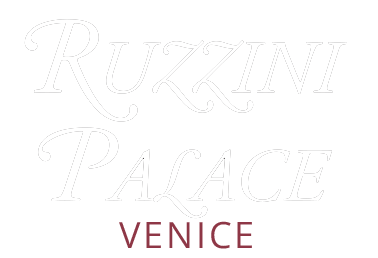The Academy of the Unknowns
This is the glorious 17th century of the Serenissima and, within the city, the plague epidemic is now just a faded remembrance. Now among the calli there is only an overwhelming and relentless desire to live, or rather, to revive. Venice is the most cosmopolitan city on the peninsula: with one arm it stretches out towards the far East of silk and Cathay, with the other it reaches out to the artistic and cultural ferment of Europe.
Yet, most importantly, Venice's soul is unbounded, and therefore a preferred destination for daring, rebellious, intrepid thinkers. In this era of rich intellectual fervour, the Ruzzini Palace is the intriguing and mysterious protagonist of a story destined to leave an enduring mark on the centuries to come: within its sumptuous walls, in fact, the most non-conformist Venetians secretly met together, following the motto of intus ut libet, foris ut moris est - do whatever you wish in private, in public, suit the customs.

"Undercover"... Giovanni Francesco Loredan attracted Italy's finest intellects here.¹
THE UNKNOWNS
Giovanni Francesco Loredan, born a nobleman and rebel by vocation, founded the Academy of the Unknowns, Ex Ignoto Notus, in 1630 - when he was just a dissolute 27-year-old. Its main purpose was to voice the reckless, the impudent, the Venetian libertines whose vocal chords (never their wills) were shattered by the rigid censorship.
Actual site of these clandestine encounters is our very own Ruzzini Palace, in full Loredan Ruzzini Priuli Palace, the aristocratic residence of the Loredan family in the throbbing heart of Venice. Here, far from prying ears, the faces concealed by traditional masks to escape the deadly accusation of blasphemy and apostasy, forbidden and censored books were read, printed in religious secrecy by Venetian printers.
The
Unknowns, were inherently anti-clerical and anti-monarchist, intolerant of episcopal and Spanish arrogance, confident in the golden future of the Serenissima, an empire whose Sun was not to set.

The mask - why?
We are undercover: it is a game, a very serious game. Men, women, Venetians, foreigners, gentlemen, Jews...
Only free spirits, intelligences play at being undercover...¹
DARING PUBLISHING
Their weapons, pen and paper: no literary genre was spared, from fiction to historiography, passing through poetry to Latin treatises, with a not too subtle undertone of Marinist imprint. A distinguishing feature of the 'Unknown' books was the logo created by the foreigner Francesco Ruschi and imprinted on the title page, depicting the Nile (whose sources were, nomen omen, unknown), flowing in all its disruptive vigour from the top of a mountain and then plunging into the Mediterranean Sea.
And, despite the onerous effort to print these mysterious writings in clandestine presses while avoiding even the most insignificant of paratextual elements that would incriminate the unscrupulous printer, the logo, there, printed in plain sight before anyone's eyes, was a gauntlet. The Unknowns were not so much so, after all. Their activity did not only end in the literary universe, but also touched other areas, such as music, theatre and figurative art.

Venice, one evening in February 1631, Palazzo Loredan in Santa Maria Formosa: a meeting of the Academy of the Unknowns is in progress. To the notes of Monteverdi's madrigal 'Non vedrò mai le stelle' (I shall never see the stars), a gentle, masked elderly gentleman whispers the lines of the incipit of a sonnet to a young woman, also masked...¹
THE SECRET LIFE OF PALAZZO RUZZINI
The unconventional aspect of this non-conformist academy was the public employment of its members, who, in addition to their aristocratic origins, often worked as senators or councillors of the Republic of the Serenissima, and in the darkness of anonymity amused themselves by reading and passing on the most forbidden and shocking writings of the time.
Behind many of the masks, there were doges, lawyers, well-known city councillors: Giovanni Francesco Loredan himself boasted of his illustrious position in the Minor Council, composed of the six aristocrats who, in close synergy with the doge, were none other than the Serenissima Signoria.
Palazzo Ruzzini, therefore, in the eyes of mere observers who lingered to peer at its imposing Baroque facades with their noses turned up, was simply the home of a wealthy nobleman - but for the chosen few, the free spirits, it was the place devoted to the enigma, the occult, the forbidden. This is the secret life of Palazzo Ruzzini.
















































































































